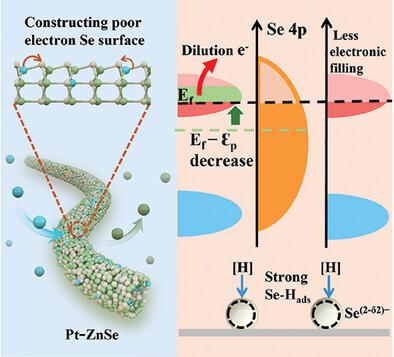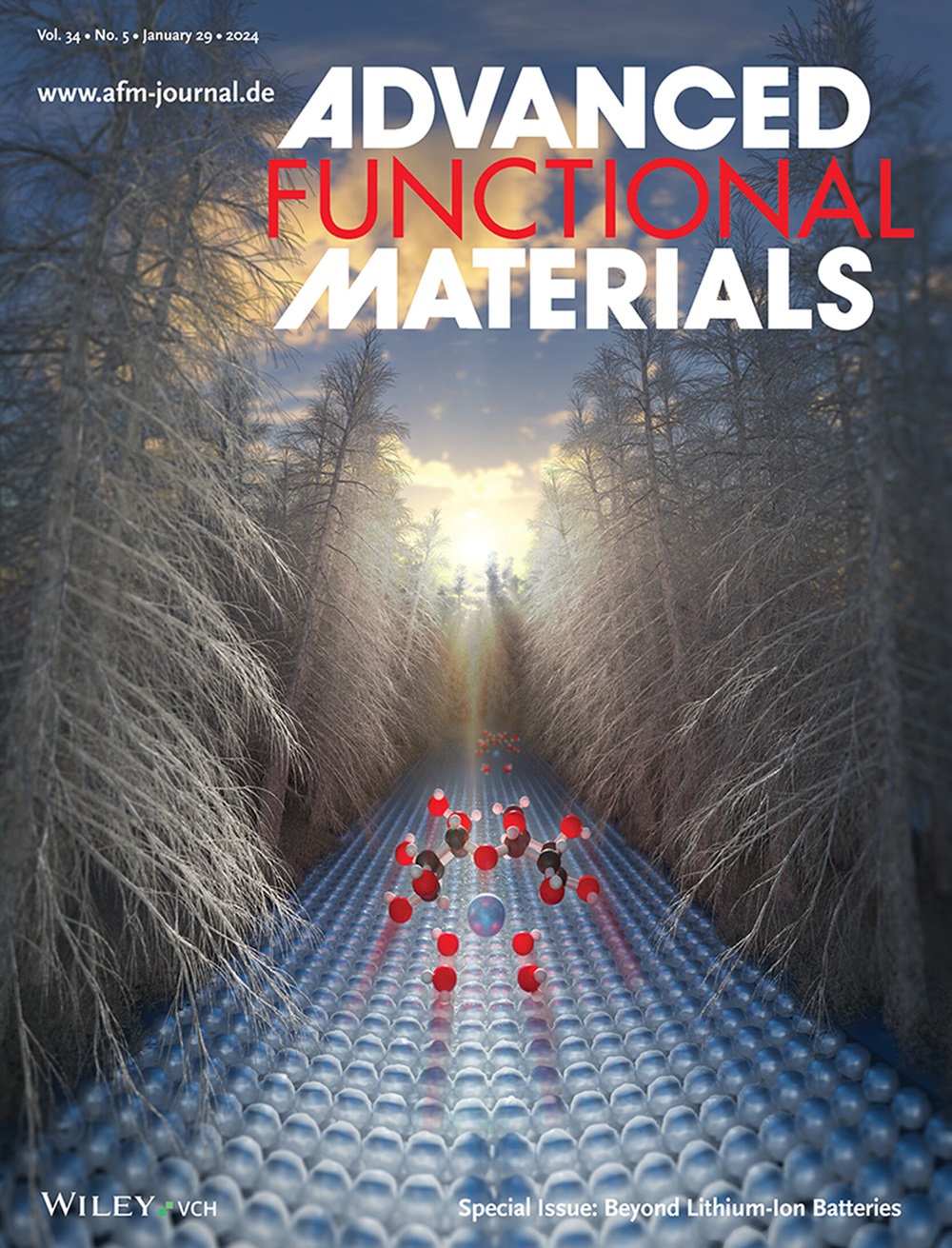Diluting the Electric Supply of Surface Selenium Species to Realize Enhanced Hydrogen Monitoring in Agriculture
IF 18.5
1区 材料科学
Q1 CHEMISTRY, MULTIDISCIPLINARY
引用次数: 0
Abstract
Electron state of catalyst surface is crucial to optimize the adsorption/intermediate state of gas molecules during the sensing reaction. Herein, we develop an electron-dilution strategy by introducing Pd/Pt species into semiconductor ZnSe to construct electron-deficient Se surface, exhibiting excellent H2 sensing performances. It is found that different metal doping can induce remarkable electric environment changes of Se atoms. For example, compared with Pd, Pt display stronger electronic dilution ability to adjacent Se atoms. X-ray photoelectron spectroscopy (XPS) characterizations further prove that the doping of Pd/Pt will induce the generation of the electron-deficient Se sites, appearing a new and high binding energy state. Furthermore, the density functional theory (DFT) calculations show that the deficient Se sites on the Pt-ZnSe surface could reduce the level of anti-bonding orbital filling, thus enhancing the stability of the Se-Hads bond and strengthening the H2 adsorption. As a result, the Pt-ZnSe based micro-electromechanical systems (MEMS) gas sensors exhibit high response value of 3.22 to 10 ppm H2 at low operation temperature of 145 °C. Inserting the Pt-ZnSe MEMS sensors array into multifunctional wireless sensing device, it can realize real-time H2/temperature/humidity monitoring and cloud data transmission for hydrogen agriculture on production, preserving and storing crop.

求助全文
约1分钟内获得全文
求助全文
来源期刊

Advanced Functional Materials
工程技术-材料科学:综合
CiteScore
29.50
自引率
4.20%
发文量
2086
审稿时长
2.1 months
期刊介绍:
Firmly established as a top-tier materials science journal, Advanced Functional Materials reports breakthrough research in all aspects of materials science, including nanotechnology, chemistry, physics, and biology every week.
Advanced Functional Materials is known for its rapid and fair peer review, quality content, and high impact, making it the first choice of the international materials science community.
 求助内容:
求助内容: 应助结果提醒方式:
应助结果提醒方式:


